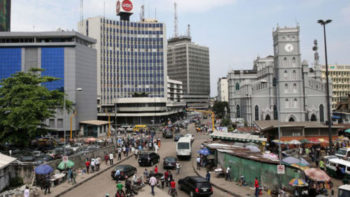
Nigeria and the International Monetary Fund (IMF) disagree over how much the economy will grow this year, with the government saying 2.2 percent and the Fund opting for just 0.8 percent.
Either would be an improvement on last year, however, when Nigeria suffered its first recession in more than two decades.
The government’s forecasts, seen by Reuters on Thursday, are contained in a document titled: 2018-2020 Medium Term Fiscal Framework and Strategy Paper, which forms the basis for its 2018 budget, dated July 27.
It projects a big bounce back, to 2.2 percent this year, 4.8 percent in 2018 and 4.5 percent in 2019, before reaching 7 percent in 2020.
The economy slipped into a recession in 2016 as low crude prices and oil production slashed government revenues, caused dollar shortages and crippled its economy.
It contracted 0.5 percent in the first quarter, its smallest fall in five quarters of decline.
The International Monetary Fund, however, is not so bullish, saying on Wednesday it expects Nigeria’s economy to grow by 0.8 percent this year, with threats to growth remaining elevated.
It saw significant revenue shortfalls in the first half of 2017, with interest payments remaining as high as 40 percent at end of June.
Nigeria estimates record spending of 7.94 trillion naira ($21.75 bln) next year, up 6.7 percent from the sum budgeted for 2017 with deficit rising to 2.45 percent as a percentage of GDP.
The government projects the naira’s exchange rate to the dollar, which has traded at around 305 on the interbank market since 2016, to remain stable while inflation will decline but remain in double-digits at 12.42 percent next year.
The OPEC member expects oil production to hit 2.3 million barrels per day and price at $45 per barrel. It said oil production reached 1.9 million barrels between January to June 2017 including condensates.